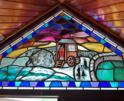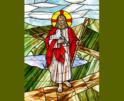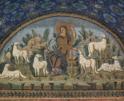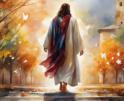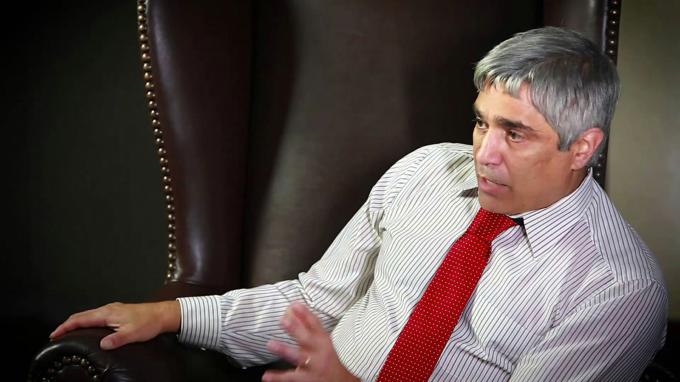
Faith
Professor Esolen thought that his job as a teacher was more than just providing lectures, pursuing his private scholarship and going to academic meetings. He thought he had a larger set of responsibilities to the college and its students.
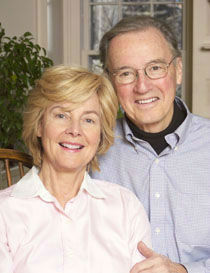
Ryan
Last fall, an outstanding teacher and leading Catholic scholar was publicly taken to the academic woodshed by his university's president. The professor is Anthony Esolen and the university is Providence College. His offense? According to the president's public letter, Esolen caused "pain" to some students, and thereby violated PC's "fundamental imperative on a Catholic campus: to be charitable to one another." Or, at least, that is the charge.
The background to this pain and betrayal of the college's "fundamental imperative," which Professor Esolen has committed, are two unpardonable sins against the reigning orthodoxy of the current academic world: he takes his faith seriously, and in addition takes seriously his responsibilities as a Catholic teacher. While doing this, he has garnered an international reputation for his translation of Dante and his body of work in Renaissance literature. Further, he is a much admired, intellectually lively and challenging teacher.
But he made a mistake. He pushed back against the snowflake concerns of a group of bullhorn-blasting student protesters. The students were protesting the Providence College's lack of "inclusion" in the college's liberal arts curriculum, a curriculum that admirably exposes students to the great works of masterworks of Western Civilization. To the university's credit, it has held onto this hallowed aim of a liberal arts education while most of our prestigious institutions have given into the rage for relevance, a murky term that usually means easy courses about current ideas and recent academic fads, such as feminist studies, environmental racism and the art of the movie.
Professor Esolen apparently thought that as a faculty member he should try to get the protesting students to think about what they were asking for. What does "inclusion" mean? What is this "diversity" they were chanting about? Were they too quickly dismissing the works of those "dead, white men?"
Besides talking to students, he penned two articles for the online Catholic magazine Crisis.
"When I see the word 'diversity' in its current use as a political slogan, I ask myself the following questions:
"What is diversity, as opposed to divergence?
"What is diversity, as opposed to mere variety?
"What goods, precisely, is diversity supposed to deliver?
"Why is intellectual diversity not served by the study of a dozen cultures of the past, with their vast array of customs, poetry, art, and worship of the gods?," he wrote.
And further:
"There was something narcissistic in the common insistence that people should study THEMSELVES rather than people who lived long ago and in cultures far removed from ours ... and that there was something totalitarian in the impulse of the secular left, to attempt to subject our curriculum to the demands of a current political aim."
For his efforts, he was rebuffed by the protesters, who called him a "racist," the most offensive word in current social usage, and a damning accusation to any academic. Then, they took their case to the college president, who in turn issued an "on-one-hand and on-the-other" statement that said, while defending freedom of speech, that Professor Esolen has caused pain, etc.
Professor Esolen thought that his job as a teacher was more than just providing lectures, pursuing his private scholarship and going to academic meetings. He thought he had a larger set of responsibilities to the college and its students. His was an attempt to help establish and maintain an environment, a climate that promotes the individual college's mission and goals.
In theory, the faculty of a Catholic college is expected to create a special environment that promotes academic excellence and fosters a deep understanding and commitment to the Catholic faith. That responsibility includes the ability to explore ideas in a rational manner, to respect the institution's rules, and to behave in a manner that preserves the environment. Sounds old-fashion and out of step with "the modern university"? Yes. Throughout higher education, most faculty members have given up their "environmental caretaker" role and left campus disruptions to low-level administrators to deal with riotous behavior and student protests.
While there may, indeed, have been others at PC, there was one faculty member who did his job and attempted to "teach" students what a university is and what academic discourse is. The operative word here is "was."
Last week in another article in Crisis magazine, Anthony Esolen announced to his students, faculty and friends that he was leaving Providence College. A scholar of his stature and luminosity could easily have picked up the phone and found a cushy position in any number of the country's top universities. Instead he accepted an invitation from Thomas More College in Merrimack, New Hampshire, some 40 miles north of Boston. In addition to fulltime teaching at the college, Dr. Esolen will be helping to start a new center dedicated to cultural restoration.
In that article he stated:
"I am too old to want to spend the evening of my career trying to shore up a crumbling wall, when those in authority at the college are unwilling to listen to our pleas ... but instead hand out lemonade to the professors with the sledge hammers."
"I'm a born teacher. I don't mean to say that I am great at it -- I'm quite aware of my flaws, which I'd rather not enumerate. I mean that even when I was a little boy I wanted to show people things, just because I liked them and wanted to share them. Teaching, for me, has always retained much of that happy boyish enthusiasm; it's why I find it hard to understand people who turn teaching into politics by other means. Why would you do that? Wouldn't it be like sitting on a Rembrandt while holding forth about Donald Trump and Hillary Clinton?
"And further on, I sat for an hour with happy and talkative students, combing through the allusions and the strange repetitions of Eliot's 'The Hollow Men' -- not the most auspicious text for cheerful and enthusiastic conversation, and yet that is what we enjoyed. Nobody had a cell phone in his lap. Nobody gave me the sense that reading Eliot took time away from the really important things in life, whatever they are."
Thomas More College is a jewel among a dozen or so small Catholic colleges which are reclaiming what a college should be: a rigorous and joyful community of scholars and students, dedicated to exploring the best of thought and art that the world has produced; a four year retreat from the world of pop culture and materialism where, under the guidance of caring adults, young men and women have the great luxury of discovering the complimentary of faith and reason; a place where their minds grow and their souls feed on the beauty and wisdom of the Catholic tradition.
Thomas More College is a place where a scholar-teacher, such as Professor Esolen, can live out Chaucer's old, but enduring ideal of the teacher, a joyful setting where "gladly would he learn and gladly teach."
His voice gives greater volume to Thomas More College's witness to the enduring importance of a liberal arts education and the Catholic Church's contribution to our age -- an age so confused over the nature of faith and reason.
- Kevin and Marilyn Ryan, editors of "Why I'm Still a Catholic," worship at St. Lawrence Church in Brookline, Mass.
Recent articles in the Faith & Family section
-
Popular devotions and the liturgyFather Robert M. O’Grady
-
The Fight for Our FaithMaureen Crowley Heil
-
The shepherd's voiceScott Hahn
-
Scripture Reflection for April 21, 2024, Fourth Sunday of EasterJem Sullivan
-
The new Temple: How Easter changes religionDr. R. Jared Staudt


